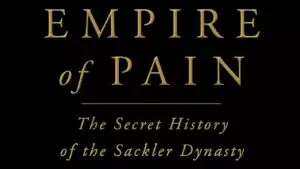By Dolan Cummings

✅ AI Essay Writer ✅ AI Detector ✅ Plagchecker ✅ Paraphraser
✅ Summarizer ✅ Citation Generator
In The Bible Now, Richard Elliott Friedman and Shawna Dolansky seek to bring the insights of their academic field, critical Bible scholarship, to bear on contemporary debates in which the authority of the Bible is regularly invoked or assumed. The book is both fascinating and infuriating: fascinating because of the light the authors are able to shed on sometimes obscure and ambiguous passages from the scriptures, and infuriating because of their haughty dismissal of anyone else who ‘feels qualified to interpret the scriptures’ without sharing the authors’ learning, and in particular their knowledge of Hebrew.
In fact, the book is misleadingly titled, since it is solely concerned with the Hebrew Bible, or Old Testament; Jesus Christ does not even make the index. That need not have been a problem—the Hebrew Bible is plenty to be getting on with—except that it rather undermines some of the authors’ posturing. At one point, they rail against those who read Genesis or just a passage from it and imagine they understand the whole Bible (p174). But the very question of what constitutes ‘the whole Bible’ cannot be answered by a close reading, however accomplished, of the Hebrew text. From a Jewish perspective, perhaps it makes sense to see the Hebrew scriptures as the whole Bible, but from a Christian perspective, it certainly does not.
This matters to non-Christians too, because the authority of the Bible derives not from the text itself but largely from its place in the Christian religion, which, like it or not, helped shape the modern world. Friedman and Dolansky can help us understand what the text does and does not say. But the importance of that text rests on its religious significance, so academics can hardly have the last word. Since the Reformation, the idea that even hoi polloi, who need to have the Bible translated for them, can fruitfully engage with it has been central to Christian and humanist culture. So too has the understanding that there is ultimately no substitute for original sources. Between them, demands for vernacular translation and for fidelity to the original text ate away at the dominance of the Roman Church’s Latin Vulgate, which was inaccessible to most people and unreliable anyway.
Where religious leaders and commentators simply misrepresent the Bible, scholars can and should call them on it. But when it comes to nuance and questions of emphasis, believers—those who care most about what the Bible says—are always going to prefer the faith-infused interpretation of other believers to that of a couple of Hebrew nerds. Nonetheless, as accomplished scholars, Friedman and Dolansky have plenty to contribute to our understanding of the scriptures, whatever our beliefs. In The Bible Now, they take five controversial issues and look in turn at what the Hebrew Bible’s law, poetry, and prose have to say about them.
What exactly is an abomination?
The first chapter, and by far the best, deals with homosexuality. The strength of the authors’ approach to this issue is not in fact linguistic precision so much as historical awareness. They acknowledge that there is no denying homosexuality is condemned in the Bible, most clearly in Leviticus 18 and 20. Notoriously, many other things are condemned here and in similar passages, from sex during menstruation to mixing fibres, that Christians today tend not to worry about. Nonetheless, Friedman and Dolansky want to understand the text in its own terms, rather than dismissing its condemnation of homosexuality as an irrational prejudice, as secular critics typically do.
The crucial verses, in the most familiar King James Version, are these:
‘Thou shalt not lie with mankind, as with womankind: it is abomination’ (18:22)
‘If a man also lie with mankind, as he lieth with a woman, both of them have committed an abomination: they shall surely be put to death; their blood shall be upon them’ (20:13).
In Friedman’s and Dolansky’s own more precise translation, what is proscribed is ‘laying a male the layings of a woman’, but the sense is the same. What they usefully challenge is our implicit assumptions about what this means culturally. The problem is that when we think of a man having sex with a woman today, we tend to assume an equal relationship, whether a loving one or a merely hedonistic one. And that being so, why should not two men enjoy the same kind of thing if that is what they prefer (or two women, not something condemned in the Bible)?
In fact, heterosexual relationships in Biblical times, and indeed for much of human history, were not equal. Women were considered inferior. To treat a man as one would a woman, then, was not simply different or abnormal, but degrading to the man in question. As Friedman and Dolansky put it, ‘What the authors of Leviticus 18 and 20 may be prohibiting is not homosexuality as we would construe the category today, but rather, an act that they understood to rob another man of his social status by feminizing him’ (p34). In modern terms, what is condemned is perhaps closer to prison rape than gay love.
They back up this suggestion with a fascinating comparison with rules and customs in other neighbouring cultures at the same time. Both ancient Greek and Assyrian moral codes allowed men to have sex with other men of a lower social status, such as slaves, adolescents, and foreigners. But it was not acceptable for an adult male citizen to be taken ‘like a woman’. The Hebrew Bible extends this courtesy to all men. Rather than being uniquely ‘homophobic’ in the ancient Near East, then, the Bible shows a unique concern for the equal dignity of all men (though not of course women).
Friedman and Dolansky spend more time than seems necessary dismissing the idea that homosexuality is the definitive sin of the Sodomites. When a baying mob besieges Lot’s house in Genesis 19, demanding that he bring out his guests (who happen to be angels) to be raped, it seems perverse to assume the mob’s ‘sexuality’ is the issue. The point is that it is precisely because homosexuality is associated in the scriptures with violent degradation and defilement (as well as pagan ritual) that it is regarded as sinful. Of course, many people continue to object to homosexuality for a variety of reasons, some of which may find support elsewhere in the Bible. Fundamentally, though, modern attitudes to heterosexuality—our basic belief in gender equality—arguably render the Bible’s condemnation of homosexuality meaningless for us.
Is gender equality un-Biblical?
That brings us to the status of women in the Hebrew Bible, the subject of another chapter, though as Friedman and Dolansky acknowledge, there is more than enough material for several whole books. Again, there is no doubt that women have a subordinate role in much of the Bible. The authors highlight certain ambiguities, however, and emphasise that the scriptures are not a manifesto or a simple set of instructions (the interminable DIY instructions in Exodus excepted). They conclude their account of the story of David and Bathsheba by noting that women can be the downfall of men as well as their conquests, and warn: ‘It’s a man’s world—but not so fast, dear reader. It is complex. Subtle, artistic, nuanced, realistic, savvy great literature is like that’ (p98).
They also explain that, while the traditional belief is that Genesis and the other first five books of the Bible were written by Moses, critical Bible scholarship indicates that even the opening few chapters of Genesis derive from two separate sources, known as P and J. The first says simply that God created humans in his own image, both male and female (1:27), before the second tells the story of God making Adam first, and Eve later from one of his ribs, as what is traditionally translated as a helper (2:20-23). By drawing attention to the human composition of the scriptures and their internal differences, Friedman and Dolansky encourage a more sceptical reading; they also suggest the Hebrew word translated as a ‘helper’ for Adam could just as easily mean ‘a strength corresponding to him’ (p78). Barbra Streisand fans might remember a similar argument about the word rib in the musical Yentl.
The most interesting section in this chapter, though, concerns the pivotal moment in Genesis when Adam and Eve eat the forbidden fruit and God announces their punishments. The authors note that this story includes a series of ‘etiologies’, explaining variously why snakes have no legs and why we have to work the ground for food, as well as why women are dominated by men. The crucial verse is 3.16: (in the authors’ own translation) ‘To the woman He said, “I’ll make your suffering and your labour pain great. You’ll have children in pain. And your desire will be for your man, and he’ll dominate you”‘. But Friedman and Dolansky point out that these are all punishments, bad things. In the Garden of Eden before the Fall, Eve was not subordinate to Adam (pp81-82).
Moreover, they consider various Biblical constraints on men’s authority over women, and discuss numerous female heroines of the Bible. like the warrior-prophetess and judge Deborah, undermining any sense that women are supposed to be passive or submissive. Overall, they argue that the lower status of women in the scriptures is descriptive rather than prescriptive, and conclude that while it certainly does not prescribe equality either, ‘The Bible opens various doors that point to an eventual return to balance between women and men’ (p125).
One issue on which religion in general is often pitted against women’s rights today is abortion. In their chapter on this question, Friedman and Dolansky conclude that there is simply no basis in the Hebrew Bible for the prohibition of abortion. The commandment most often invoked by anti-abortionists (‘Thou shalt not kill’) in fact more specifically proscribes murder, certainly not killing in war or judicial killing, for example, and whether either is murder or not is a matter for debate on which the Bible is silent. Characteristically, the authors are at pains to stress that this does not mean people cannot or should not be opposed to abortion on religious or other grounds, but it is nonetheless significant that the Bible has nothing to say about what is such a heated religious controversy today. Meanwhile, Friedman and Dolansky are uncharacteristically unambivalent at the end of their chapter on capital punishment, concluding that while the Bible does not give a definitive answer, human beings are simply not mature enough to make such a momentous decision (p148).
What is dominion, and is the world full up?
The final chapter concerns the earth, and it is here that the Bible scholars’ judgement is most clearly influenced by non-scholarly preoccupations. They are at pains to reject claims by some right-wing American Christians that humans are licensed to exploit the earth ruthlessly by the famous verse from Genesis: ‘Be fruitful and multiply and fill the earth and subdue it and dominate the fish of the sea and the birds of the skies and every animal that creeps on the earth’ (1:28). The problem is that the authors see the debate as one between crazies who want to ‘rape’ the earth, and sensible people who care about our environment. Pointing to various Biblical rules concerning agriculture and other dealings with the natural world, they repeatedly insist that dominion does not mean humans ‘can do whatever we want’.
In fact, we do not want to destroy the conditions of our own existence, so care for our own environment is surely consistent with the idea of dominion, without qualification. Modern environmentalism often goes much further, however, attributing intrinsic value to the natural world, even deifying it, in a way that is clearly un-Biblical. This matters, and not just to believers, because some environmentalist thinking is positively anti-human. Those who seek to minimise ‘the human footprint’ on the earth, for example, typically demand reduced consumption in the West and the curtailment of material development in the rest of the world. One of the most pernicious environmentalist prejudices is that the earth is ‘overpopulated’ by humans, and this is enthusiastically endorsed by Friedman and Dolansky.
Naturally, then, the authors have a particular problem with that little phrase, ‘be fruitful and multiply’. Their solution is nothing if not audacious. ‘The filling of the earth has now been reached and surpassed,’ we are told. ‘To increase the population of the earth now would be to add to that command, to overdo it’ (p151). This is an extraordinary claim, all the more so when you realise the authors are not talking about the massive expansion of the world population since Thomas Malthus claimed in 1798 that the world was full up then. No, for Friedman and Dolansky, ‘be fruitful and multiply’ is another etiology, explaining to readers in the first millennium BC how the world had already got to be so full way back then (p150). Now, it is estimated that over that millennium, the world population rose from less than a hundred million to perhaps a few hundred million. Last year, it passed seven billion. According to the authors of The Bible Now, the earth was already full with no more than five percent of its current population.
They go on to cite a commandment from Deuteronomy: ‘You shall not add onto the thing that I command you, and you shall not subtract from it’ (4:2). So ‘overpopulation’ is a positive violation of a Biblical commandment! The only problem is Friedman and Dolansky are unable to offer any evidence from the scriptures of God’s intended population for the earth. There is just that nagging ‘be fruitful and multiply’, which would seem to suggest more is better. They do make the point that it is possible to have too much of a good thing, and raise the prospect of humans being ‘shoulder to shoulder all over the earth’ (p153). But even at seven billion, we are nowhere near physical capacity. Yes, there are people starving in the world, but that was true even at a fraction of the current population: social and material development—divinely ordained or otherwise—have made it possible for the earth to sustain numbers that were unthinkable in Malthus’ time, never mind Adam’s.
Ultimately, it can only be sympathy for modern environmentalism that leads Friedman and Dolansky to interpret the Hebrew Bible as they do on this point. This is a pity, because in scholarly mode, they make a much more interesting point about that troublesome phrase. In fact, they maintain that ‘be fruitful and multiply’ is not a ‘commandment’ at all, but a ‘blessing’, and make a persuasive case for this with reference to several further passages (pp151-152). One consequence is that we are not all individually obliged to reproduce, which will be a relief to some, but in fact the recasting of human multiplication as a blessing actually undermines the authors’ case for population restraint. Even if a commandment can be, a blessing is surely not something that is fulfilled and then consigned to history. Most people consider it a blessing every time a baby is born to loving parents, or a grandparent beams with joy at a lapful of progeny, making a plain reading of ‘be fruitful and multiply’ far more convincing than Friedman’s and Dolansky’s tortured accommodation of modern secular ideas about overpopulation.
The authors end their book with an almost comical restatement of their concerns about unsupervised Bible-reading: ‘We have warned about doing Bible when one is not trained in it. It is a bad thing to do in general’ (p177). Have they learned nothing about forbidden fruit? Of course, the real danger, as Friedman and Dolansky acknowledge, is when people allow others to ‘do Bible’ on their behalf and accept their interpretations uncritically, but in fact this is only truly dangerous for those who believe the scriptures have divine authority. That is a matter of faith, and the idea that you can separate faith in the authority of the Bible from interpretation of it is surely vain. As the authors themselves demonstrate, no interpretation is ever absolutely free from the influence of the reader’s pre-existing ideas and beliefs.
Naturally, scholars should be as objective and faithful to the text as possible, but as long as people see the Hebrew Bible as more than a curious collection of writings from an ancient civilisation, they will want to argue over its meaning, and bring their own beliefs to bear on the text. Like Roman Catholic clergy before them, critical Bible scholars will have to learn to live with that.
————
Written under a Creative Commons License, with edits: https://creativecommons.org/licenses/by/1.0/
Follow us on Reddit for more insights and updates.





Comments (0)
Welcome to A*Help comments!
We’re all about debate and discussion at A*Help.
We value the diverse opinions of users, so you may find points of view that you don’t agree with. And that’s cool. However, there are certain things we’re not OK with: attempts to manipulate our data in any way, for example, or the posting of discriminative, offensive, hateful, or disparaging material.